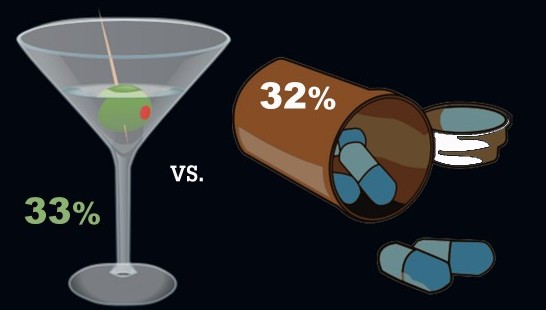
The problem seems to be gaining steam most rapidly in the northeast and east coast regions. In fact, in Vermont, while the number of those seeking treatment for alcoholism has steadily decreased over the previous ten years, those seeking treatment for opiate-based additions has increased almost four fold. The Ohio and Vermont data is especially disturbing. For the first time since the 1800’s that opiate abuse has reached such a critical mass. During that time, sweatshop workers mostly use the drug. They were forced to work 12-hour days. At that time, the drug was called Laudanum.
Opiate Painkiller Addiction Treatment & Medicaid Expansion
In 2013, around 22.7 million Americans older than age 12 needed drug or alcohol treatment, according the 2013 National Survey on Drug Use and Health. Many physicians, including those here at the Waismann Method, believe that the recent expansion of Medicaid may reveal even more alarming addiction numbers as more people seek treatment for opiate addiction. The Medicaid expansion increased the income cutoff and changed other eligibility criteria to include childless men and women.
Education is a large part of preventing opiate painkiller addiction and in treating those already addicted. Physicians must educate patients on the addictive nature of opiate-based painkillers before prescribing them. In addition, treatment must include the psychological and social issues of patients as well as the physical ones. These social and psychological issues are often the ones that lead to opiate addiction later. This is a nationwide heroin epidemic. The epidemic threatens to take over more states unless we do something to stop its cause. Of most concern, it is not just street drugs like heroin that are creating debilitating long-term addictions. Physician-prescribed painkillers are also causing long-term dependency.
For over 25 years, people from all over the world have chosen Waismann Method as their opioid detox provider.
We know the challenges you face and the importance of creating a unique and personal experience for you right from the start.Call for Detox Options 1-800-423-2482
Waismann Method Rapid Drug Detox Center
Waismann Method® is recognized as the premier rapid opiate detox treatment center in the country, specializing in rapid drug detox and utilizing the most advanced medical techniques to treat opiate addiction. Located in Southern California, Waismann Method offers a variety of programs. The programs range from rapid opiate detox under sedation to medically assisted detoxification. All programs focus on helping those suffering with opiate painkiller addiction.





